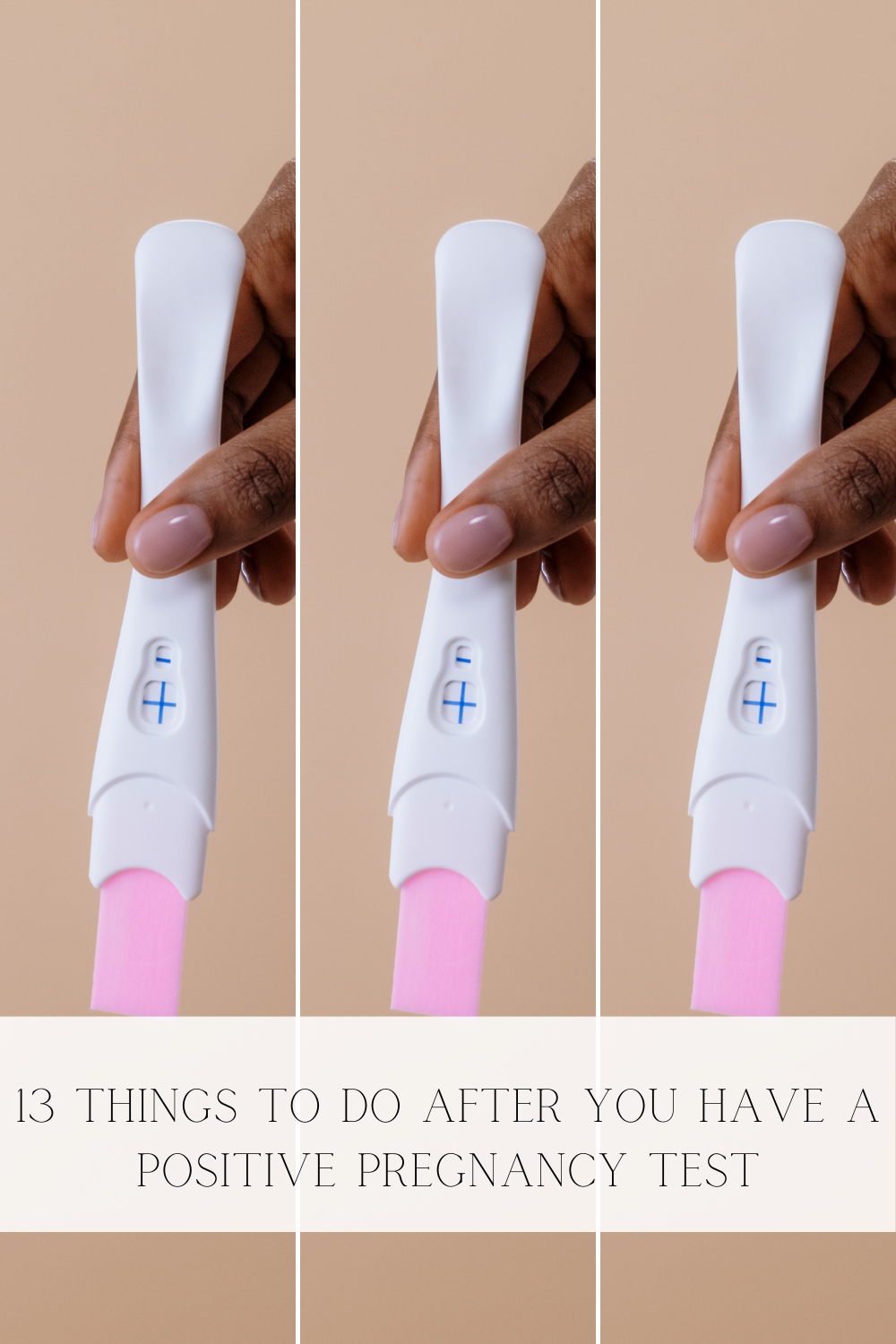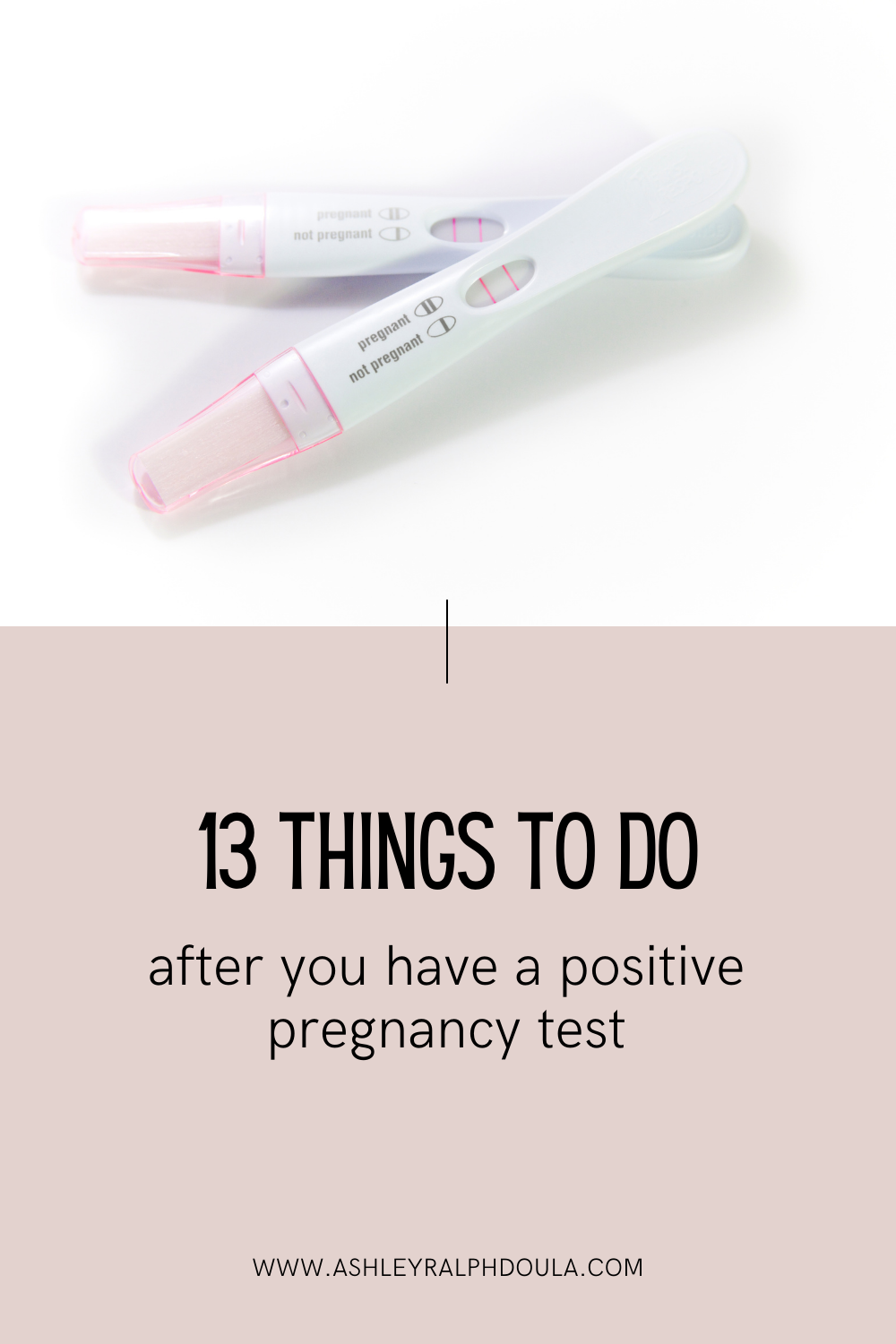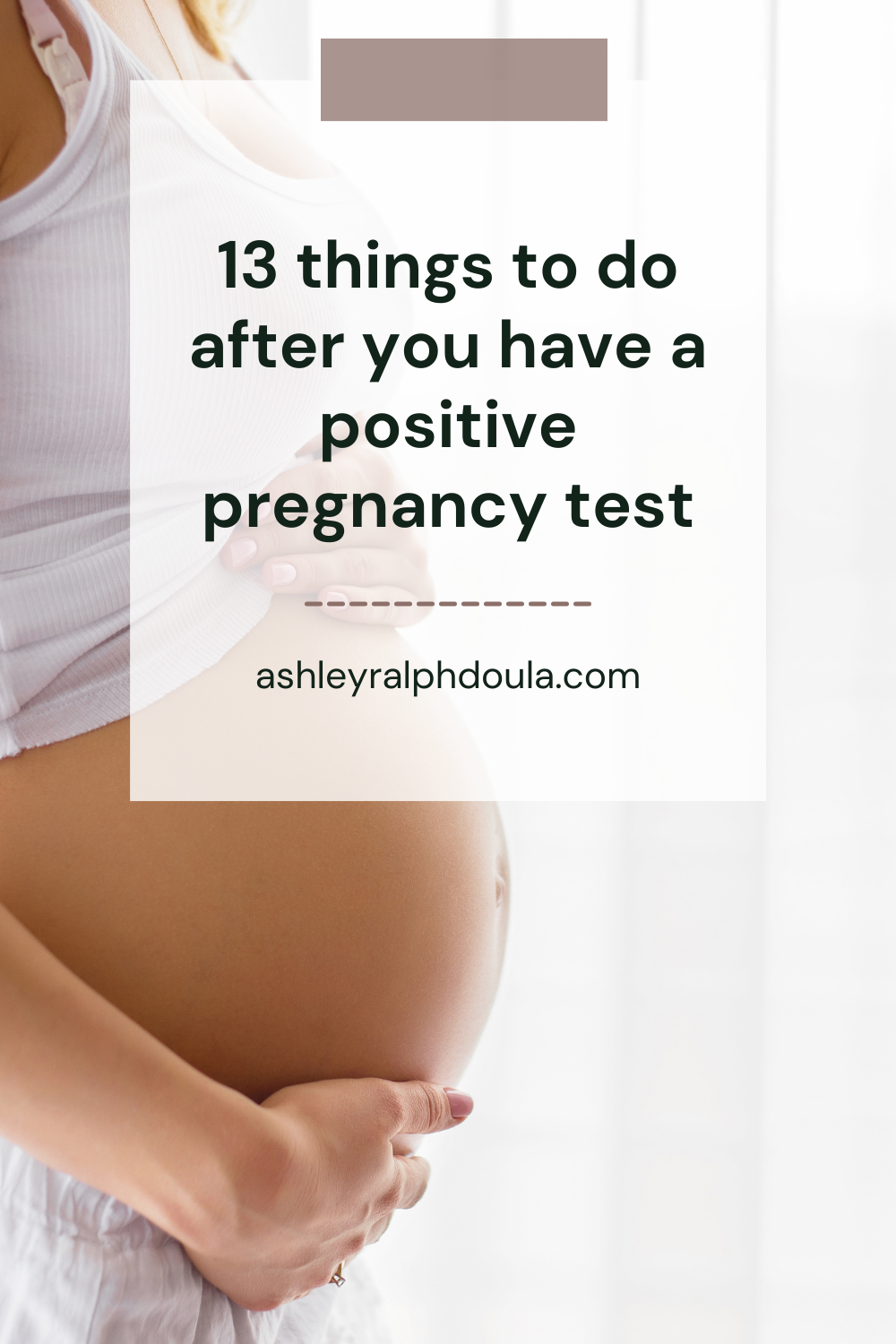13 things to do after you have a positive pregnancy test
You took a pregnancy test and it’s positive, now what?
In the post, you will learn the next steps to take after you’ve had a positive pregnancy test.
As a mom of two, I know how exciting and nerve-racking it can be to navigate what to do next. Your emotions are probably high and your thoughts are probably scrambled with excitement or anxiety.
This post is about the 13 things to do after you have a positive pregnancy test.
Congrats! You’re pregnant! Now what?
When I was pregnant with my first, I knew I had alll the things to do but didn’t know where to start.
There is so much information on the internet that I really had no idea what to do first.
Prenatal vitamin? Baby clothes? Pediatrician?
Ugh…..I was so overwhelmed.
Below, I’ve listed 13 things you need to do, in order, after you test positive.
1) Calculate your due date
After telling your partner, the next thing you need to do is calculate your due date.
There are multiple websites that you can do this on, but you start by looking for the first day of your last period. It’s ok if you have irregular periods, an ultrasound can later measure the fetus to determine your EDD(estimated due date).
You start counting by week up to 40 weeks and that will be your due date.
2) Check with your insurance company
It's important that you call your insurance or search on their app, for providers that are covered.
The worst thing is picking a provider, making the appointment, and then finding out that your insurance doesn’t cover them.
3) Call OB/Midwife
Your next step is to make an appointment with your chosen provider.
Typically, the office won’t see you until you’re at least 8 weeks along. They will ask the first day of your last period to calculate how far along you are.
4) Decide on a prenatal vitamin
There are many different prenatal vitamins on the market so it can be hard to choose which one.
Do some research to see which one feels right for you or you can wait until you see your provider to ask which one they may suggest.
I’m not going to get into the nitty-gritty of why it is recommended or what they consist of in this post.
5) Review current medications
If you are currently taking any medications, prescribed or over the counter, check to see if they are safe for pregnancy.
Most packaging will say to check with your provider for safety. You can google to see if it is safe but you're better off talking to your provider.
If it is a prescribed medication and you have a while before your first visit with the OB or midwife, call the doctor who prescribed it to you to double-check.
If it is contra-indicated for pregnancy, your prescribing provider may offer another option.
6) Stop smoking/drinking
This may be a hard one for some to do. Most providers will tell you to stop altogether but some may also work with you on a plan to lessen the amount of intake.
When I was pregnant with my first, my OB told me to have a glass of wine every night to help me relax.
Some reasons why you shouldn’t smoke or drink during pregnancy are that it can increase your risk of bleeding, miscarriage, and birth defects.
.
7) Decrease caffeine intake
You’ll be happy to know that you don’t have to give up your caffeinated beverages! Yay!!
The recommended daily intake is less than 200mg of caffeine a day.
One cup of coffee contains on average 90 mg and one shot of espresso contains around 64 mg.
So if a stop at Starbucks makes you happy, then go for it!
8) Get yourself a cute new water bottle
Yes, you have permission to go grab a cute new water bottle. Even if you have 20 others sitting in your cabinet.
The reason: it’s important to drink plenty of water while you’re pregnant.
You may be experiencing some morning sickness, so it’s important to keep yourself hydrated.
As you get further along, this will help to keep Braxton Hicks contractions away.
9) Eat healthier
Pregnancy requires a lot of vitamins and minerals to help a growing fetus. It can help reduce the risk of complications later in pregnancy.
Eating a well-balanced diet provides essential nutrients such as folic acid, iron, and calcium.
It’s also important to limit the amount of processed foods. These can lead to excess weight gain and increase the risk of gestational diabetes.
10) Get moving
You don’t need to go out and run marathons or join a gym, but staying active during your pregnancy has many benefits.
It can help reduce blood clots, reduce the chance of gestational diabetes, excessive weight gain, and reduce the chance of having a c-section.
11) Prep for morning sickness
Unfortunately, you’ll never know if you’re going to be lucky and not have it or be unlucky and have to be hospitalized for it.
You’re best bet is to prepare for it either way. You can start by making sure you have snacks with you at all times. Soft, bland foods, such as crackers and applesauce, are a great place to start.
Ginger tea, peppermint essential oil, and acupressure wristbands can be super beneficial to help you fight morning sickness.
You can also keep a morning sickness emergency kit in your car. This can include an extra set of clothes, a toothbrush, a bottle of water, puke bags, and of course, some snacks.
12) Know the signs of miscarriage
Unfortunately, 1 in 4 women have a miscarriage in their first trimester so it’s important to keep the telltale signs in the back of your mind.
These can include vaginal bleeding, vaginal cramping or pain in the lower abdomen, and passing tissue.
If you experience any of these symptoms, call your provider.
13) Tell someone
Ok this may be the most exciting thing on this checklist!
You may want to tell the world or just your partner but either way, it may be hard to contain the excitement to just yourself.
Even if you are in shock or scared shitless, I think it’s important for you to tell 1 person so you have someone in your corner to check in with you.






